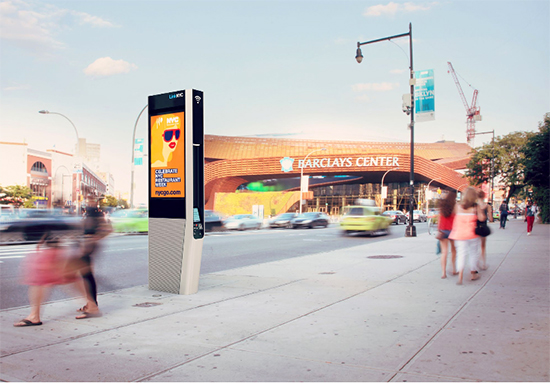NYC approves plans to replace payphones with free Wi-Fi hotspots
LinkNYC rollout includes 586 super-fast kiosks in Brooklyn

A city committee approved a contract to replace NYC’s payphones with free Wi-Fi kiosks. The LinkNYC device shown above is the superfast ad-supported model, meant for commercial neighborhoods. Rendering courtesy of CityBridge
A city committee approved on Wednesday a 12-year contract which would replace New York City’s sidewalk payphones with free Wi-Fi hot spots.
The city’s Franchise and Concession Review Committee unanimously approved the proposal to install the sleek aluminum Wi-Fi kiosks across the city.
Besides Wi-Fi, the kiosks will provide free U.S. phone calls on your cell phone, device charging stations and (in commercial districts only) “intelligent” advertising displays.
